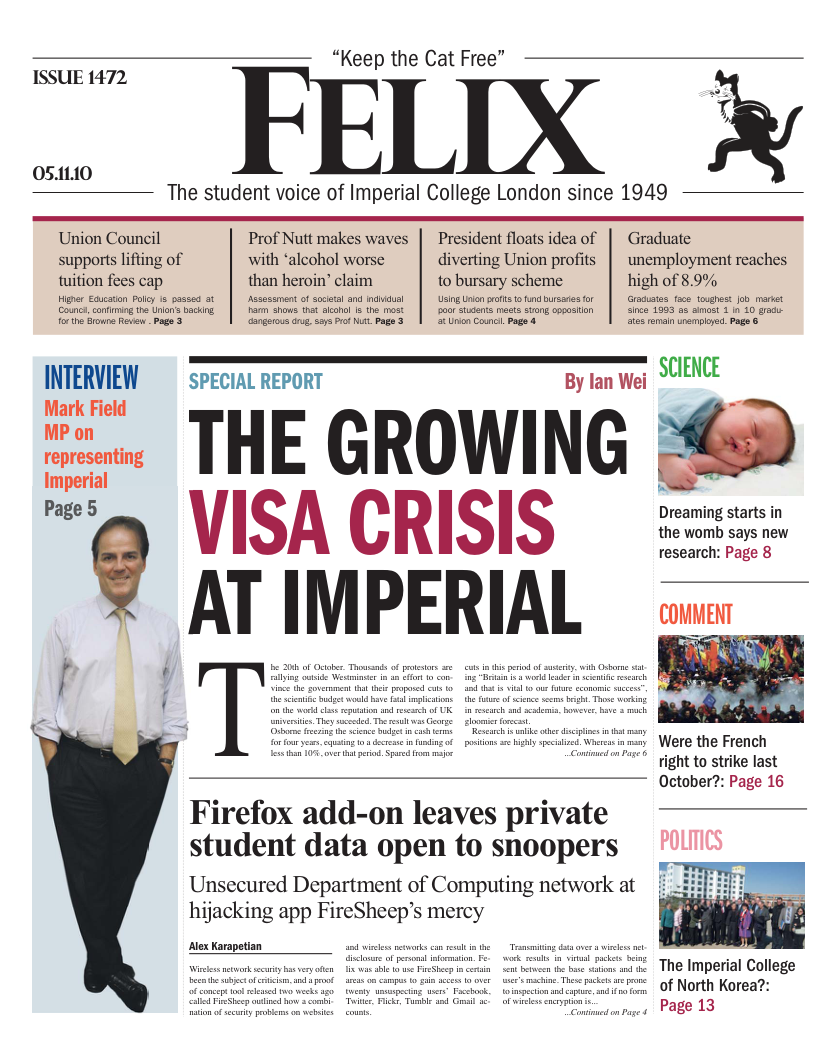Government keeps fees cap
No unlimited tuition fees after all
The coalition government has rejected the Browne Review’s proposal of unlimited tuition fees in favour of a £9,000 cap.
In an announcement on Wednesday, the proposal of a free market for tuition fees was rejected as it was seen to be unsustainable and expensive. The government was compelled to come to a final decision that would be quick to implement so that it would be in place for fees in 2012. Raising the tuition fee cap will not require a change in legislation, so can be put into place quickly.
Many universities feel that this amount is necessary to cover the costs of financing education, especially after the government cuts of 40% to teaching funds and a complete cut to funding in humanities. The higher fees will enable universities to supply more bursaries, so should not dissuade prospective students from going to university. However, there are fears that students will be put off by the estimated £40,000 debt caused by a three year degree course. Although the repayment threshold will be raised from £15,000 to £21,000 per year with a 9% repayment rate, graduates may spend 30 years paying off their debt before it is cancelled.
The Liberal Democrats, who initially pledged to have no fees at all, proposed a cap of £7000, however as some universities saw this to be inadequate and threatened to privatise, a maximum fee of £9000 was agreed. Universities who wish to charge this fee will have to make a ‘public benefit’ by taking more students from disadvantaged backgrounds, but its implication that university application will now be based on means as well as merit is controversial.
The announcement was officially made to the House of Commons by David Willetts, the Universities and Science Minister, who said that the proposal “will put universities’ finance on a sustainable footing with extra freedoms and less bureaucracy”. Aaron Porter, President of the National Union of Students, feels that the proposal will be “saddling a generation with huge debts before they have even got on their bikes to find work.” The NUS are opposed to any rise in fees and will be holding a protest in Central London on Wednesday the 10th.







